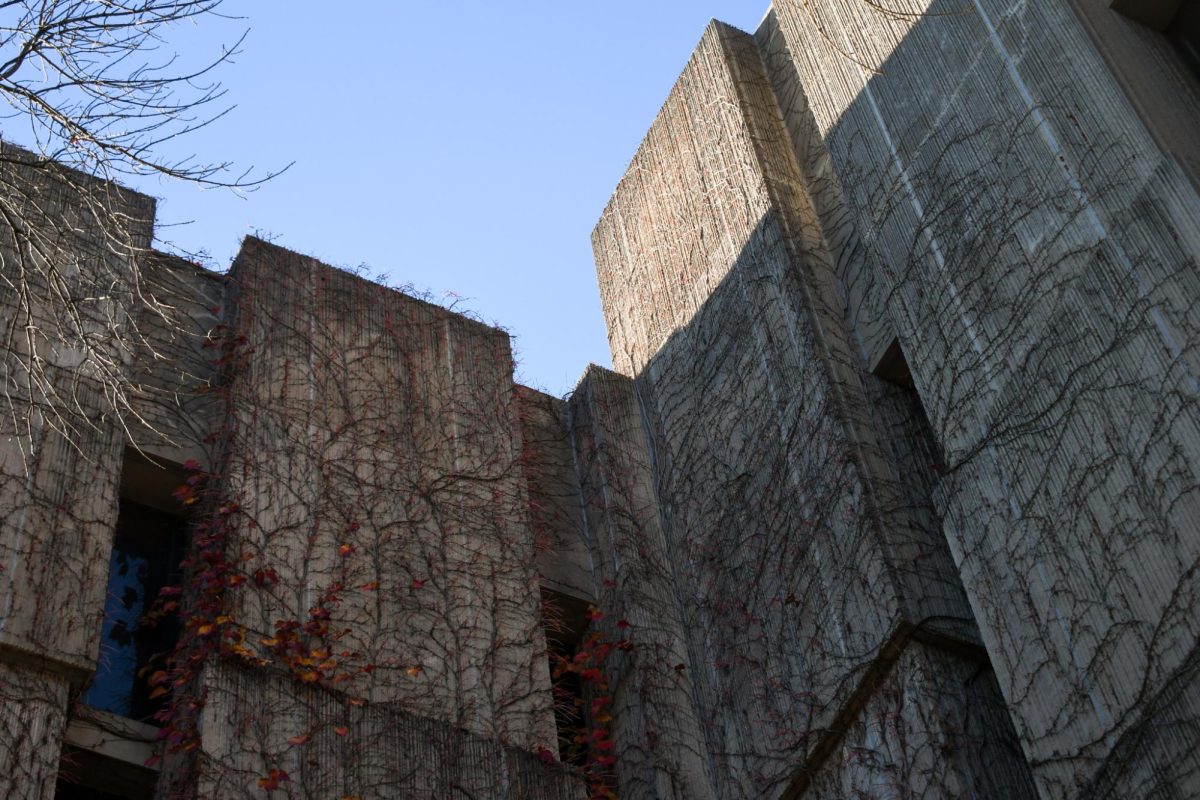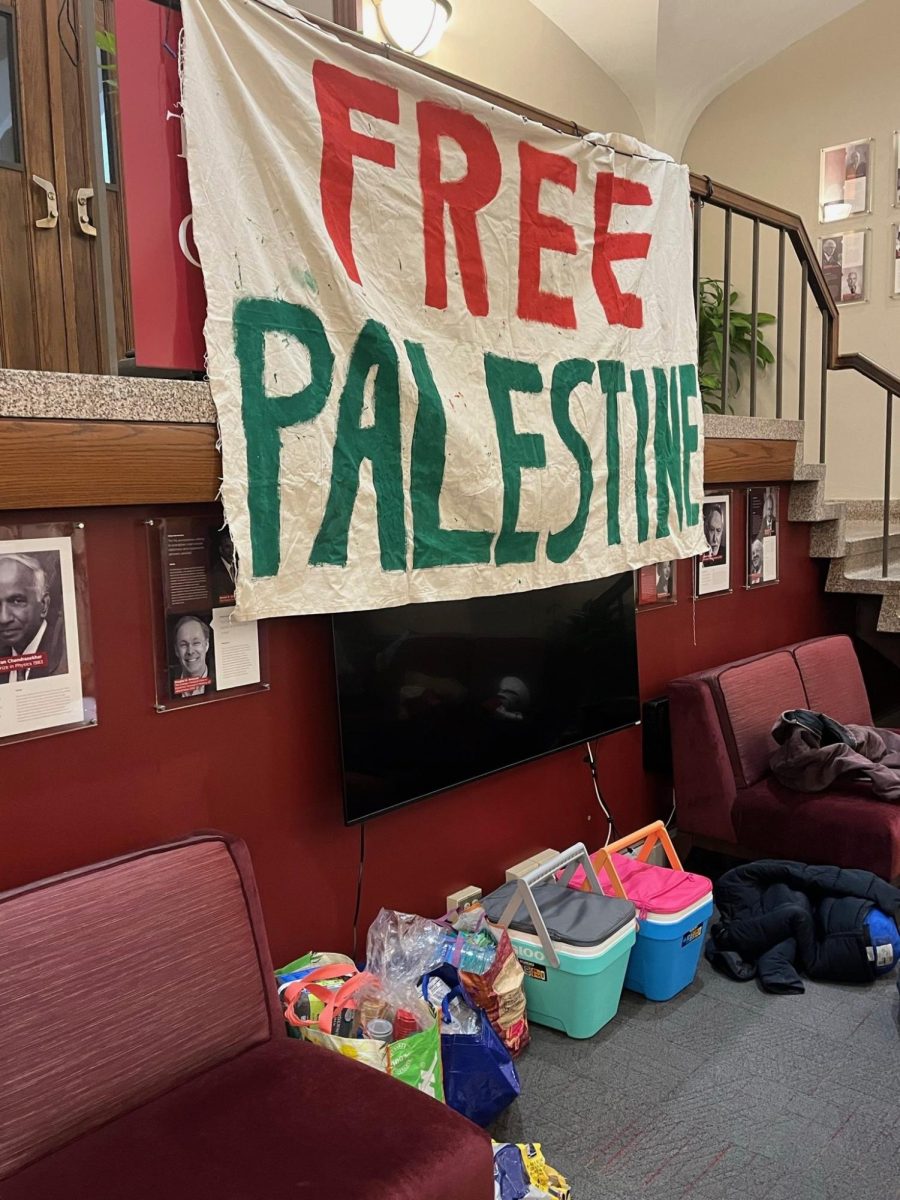Social work students at the Crown Family School of Social Work, Policy, and Practice find themselves trapped between an uncompromising administration and an unrelenting pandemic. The Crown School administration insists that in-person classes are safe for students, and the school is transitioning to an exclusively in-person classroom experience for the autumn quarter. At the same time, the school acknowledges the impact of the continuing public health crisis for licensed social workers in the school’s Professional Development Program, for whom programs will remain online to support the health and safety of professionals, their clients, and the communities they serve. This stance recognizes safety concerns and the merits of online learning to the benefit of professional social workers—at the exclusion of social work students. While last year, the Crown School held the position that online learning is a meaningful form of social work education, for the upcoming 2021–22 academic year, the administration’s position on online learning is contradictory at best. As a school of social work, the Crown School teaches its students to work compassionately with individuals and communities—so the administration should follow its own stated ideals of helping others live a quality life and support its students by offering remote learning options during the 2021–22 school year. By failing to offer inclusive, accessible learning options, the Crown School undermines its ideals and undervalues its students.
As the coronavirus pandemic evolves, the rapidly shifting epidemiological landscape has prompted peer institutions to revert to a virtual learning environment, either in part or in full; in one example, as a result of breakthrough COVID-19 cases at the beginning of the school year, Rice University pushed back its class start dates and pivoted to remote learning at the beginning of the academic year. Schools of social work at Loyola University Chicago, the University of Illinois at Chicago, and DePaul University will either conduct courses fully remotely or offer pathways for graduate students to take courses remotely or in a hybrid format this year. DePaul has taken the extra measure of providing flexible accommodations to all its students. Thus, the Crown Family School fails to meet the standards of its Chicago area peers in its refusal to offer remote or hybrid learning options this academic year. The Crown School administration must examine what is happening at universities around the country and make appropriate accommodations to serve all its students, recognizing that the Crown School community includes immunocompromised individuals, individuals who cannot be vaccinated, and individuals living with others who cannot be vaccinated.
The Crown School is denying the realities of a public health threat while stripping life-changing accessibility options from students with disabilities. Forcing these students to undergo a rigorous and potentially costly process to be considered for disability accommodations is both antiquated and antithetical to social work values. Rather, the administration should offer a pathway for remote or hybrid learning to all of its students. If the Crown Family School cannot offer a hybrid pathway this year, it should prioritize the needs of its most vulnerable students and return to remote learning entirely.
Despite UChicago’s vaccine mandate, which the Crown Family School uses as precedent for its new policy on virtual learning, many immunocompromised individuals remain vulnerable to COVID-19. Many of the Crown School’s policies prove dangerous and run the risk of disincentivizing COVID-19 procedures. Some faculty members have zero-absence policies, and there is currently no system in place for recorded lecture accommodations. These policies are likely to deter students from reporting COVID-19 symptoms truthfully and staying home or quarantining when appropriate. The school will not go beyond the City of Chicago guidelines, so there are currently no social distancing requirements in place.
During the 2020–21 academic year, when all Crown School classes were remote, many of us found that online learning supported our needs. For students who are immunocompromised or have chronic conditions, remote learning afforded the opportunity to attend classes without the increased chance of becoming ill. For students with physical disabilities for whom education within a building is challenging, remote learning was a welcome respite from physical hurdles. For students with chronic illnesses, remote learning afforded unprecedented access to education and the ability to attend class during flare-ups that would have previously resulted in absence. For students who are caregivers, remote learning provided savings on childcare costs and allowed them to be present for their children or other dependents. Some caregivers are hesitant to put children too young to be vaccinated in daycare settings, and daycare options are limited besides. With classes starting at 9:30 a.m. and ending at 8:20 p.m., in-person learning feels nonviable for caregivers and non-caregivers alike, particularly for the many students who do not live in Hyde Park.
The Crown School’s faculty advocates a both/and stance in social work, yet the administration holds a fully polarized, either/or stance to remote learning: fully remote like last year or fully on campus. We say that is unacceptable—we must use this unprecedented time as an opportunity to push for a change in the way the Crown School operates so that our school acts as a leader in modeling the inclusivity we wish to see in education and social work. When we stop using a one-size-fits-all approach to education access and instead center the needs of our most vulnerable, everybody and every body benefits. The Crown School must open the door to actual accessibility by increasing remote options, which is a long-term change that helps leave fewer people behind. After all, reimagining our notions of disability and challenging able-bodied privilege is precisely the kind of leadership and advocacy work our faculty is trying to instill in us. We know that we can help dismantle institutional ableism by increasing accessibility. Refusing to model anti-ableism within our own community through mandating in-person learning is hypocritical within the context of a radical social work education.
Remote or hybrid learning is a resoundingly popular option with Crown School students. In the 2021 spring quarter, Graduate Students United (GSU) conducted a survey to gather student feedback about field placements and mental health supports during the pandemic. The survey fielded answers from more than 190 students, a statistically significant number based on the program’s total enrollment. When asked what practices should continue post-COVID-19, more than 50 percent of students who responded wrote about their desire for virtual offerings. The administration is aware of the survey results and student concerns around accessibility, COVID-19, and caregiver needs, yet they have not provided students with a remote or hybrid option for the upcoming school year in a move that is both exclusionary and largely unpopular. In alignment with the letter recently sent to UChicago by GSU, we echo the calls for graduate student representation in the Zoom room in order to demand these options.
Stuck between inflexible mandates from UChicago and Council on Social Work Education (CSWE) accreditation requirements, the Crown School is failing to live up to the values that bring students to this work. Just as our communities expect us to stand up for our values in our work, we expect the Crown Family School to stand up for students. Accepting the restrictions placed on the Crown School from the University administration and the CSWE maintains an untenable double bind. As students actively striving to live out social work ideals in our community, we engage in the Crown School’s mission “to increase access, opportunity, and agency in order to dismantle systems of oppression and to help meet the basic needs of diverse individuals, families, and communities with compassion and humaneness,” and we demand that the Crown School do the same.
In order to remain true to the values of the social work profession, accessibility must be the top priority for the administration as it prepares for the rapidly approaching autumn quarter. We implore the Crown Family School of Social Work, Policy, and Practice to put the needs of its students first and provide remote or hybrid learning options this year.
Support our calls for accessibility by signing our petition here.
Signed,
Niki Colon, Lisa Howard, Jennifer Nemecek, Henry Rosh, Rachel Tsen, Nahime Aguirre Mtanous, Demi Collins, Anna Crofts, Fabiola Cuevas Flores, Jessica Erickson, Brooke Ferguson, Ana Fuentes, Sabrina Geraghty, Ami Goetz, Connie Greene, Crystina Harris, Anna Hoban, Bianca Huerta, Madeline Jones, Meghan Keane, Marty Kezon, Asiyah Khafiyya, Sumi Kirk, Alix Kramer, Imani LaGrone, Nicole Levonyak, Alyssa Linvell, Katherine Lobo, Gianna Lorbeck, Molly Lubetkin, Rob Meeker, Sarah Mitchell, Kim Oria, Neelima Prabhala, Emma Rust, Naomi Salcedo, Eve Skosey-LaLonde, Hannah Smith, Lindsay Somberg, Tara Song, Mehreen Tariq, Olivia Venegas, Jessica Weinstock, Charity Williams, Barrett Winston, Xoe Wise, Shan Zhang
The authors and signatories are students at the Crown Family School of Social Work, Policy, and Practice and advocates for remote learning.






